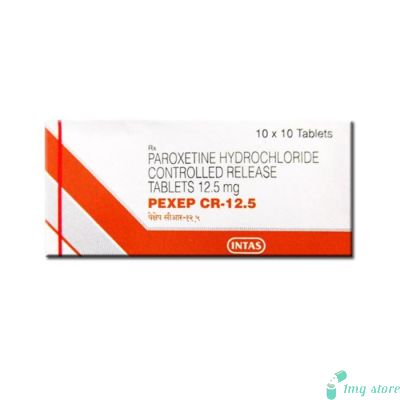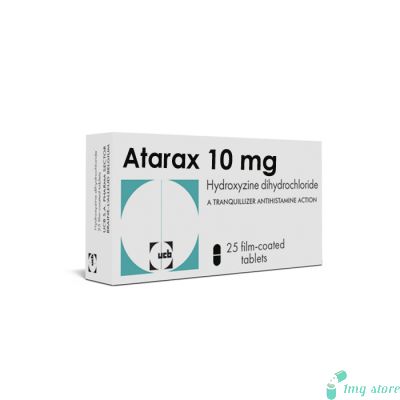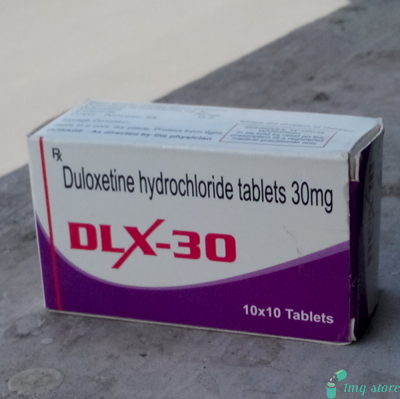Paroxit Tablet (Paroxetine)
Paroxetine Tablet and its extended-release counterpart, Paroxit SR, as well as its brand name, Paxil. It used in the field of neurology to treat various mental health conditions
Introduction
Paroxetine Tablet is a medication used in the field of neurology to treat various mental health conditions. This comprehensive guide provides essential information about Paroxetine Tablet and its extended-release counterpart, Paroxit SR, as well as its brand name, Paxil. We will delve into dosage information, including missed doses and overdose possibilities, precautions to take while using the medication, potential drug interactions, common uses, side effects, and more.
Dosage Information
Recommended Dosage
The appropriate dosage of Paroxetine Tablet can vary depending on the specific condition being treated. Generally, the initial recommended dose for adults is 20 mg daily. However, your healthcare provider may adjust this based on your individual needs.
Missed Dose
If you miss a dose, take it as soon as you remember. If it's close to the time for your next dose, skip the missed one and continue with your regular schedule. Do not double the dose to catch up.
Overdose
Overdosing on Paroxetine Tablet can be dangerous and should be avoided. Symptoms of overdose may include nausea, vomiting, tremors, rapid heartbeat, and confusion. If you suspect an overdose, seek immediate medical attention.
Buy Paroxetine Tablet at 1mgstore.com
Affordable Paroxetine Tablets at 1mgstore.com
Premium Paroxetine Tablets
In conclusion, Paroxetine Tablet, available as Paroxit SR and Paxil, is a vital medication in the field of neurology, offering relief to those struggling with various mental health conditions. However, it should be used with caution, adhering to recommended dosages, and under the guidance of a healthcare professional. Be aware of potential interactions and side effects, and always seek medical advice for your specific needs. At 1mgstore.com, you can find affordable and premium Paroxetine Tablets to support your mental health journey.
If Paroxetine Tablet is not suitable or well-tolerated for your specific needs, there are several alternative medications available that you can explore. Your healthcare provider can help you determine the most appropriate choice based on your condition. Some alternatives to Paroxetine may include other selective serotonin reuptake inhibitors (SSRIs) such as Sertraline or Escitalopram, which are commonly used to treat depression and anxiety disorders. Additionally, serotonin-norepinephrine reuptake inhibitors (SNRIs) like Venlafaxine or Duloxetine offer another avenue for managing these conditions. It's important to consult with your healthcare professional to discuss these options and their availability at 1mgstore.com to make an informed decision about your treatment.
Pregnancy and Nursing: Paroxetine should be used with caution during pregnancy and while nursing, as it may pose risks to the developing fetus or nursing infant.
Suicidal Thoughts: Individuals taking Paroxetine should be closely monitored, especially in the early stages of treatment, for any signs of increased suicidal thoughts or behaviors.
Allergic Reactions: If you experience allergic reactions such as rash, itching, swelling, severe dizziness, or difficulty breathing while taking Paroxetine, seek medical attention promptly.
Liver and Kidney Function: Patients with impaired liver or kidney function may require dosage adjustments or more frequent monitoring while taking this medication.
Alcohol and Other Substances: Avoid or limit alcohol consumption and consult your healthcare provider regarding the use of other substances while on Paroxetine, as interactions can occur.
Paroxetine Tablets, including the extended-release Paroxit SR and brand name Paxil, are prescribed for various neurology-related conditions, including:
Major Depressive Disorder: Paroxetine is used to treat symptoms of depression, such as persistent sadness, changes in appetite, and loss of interest in activities.
Generalized Anxiety Disorder (GAD): It is effective in managing excessive worry, anxiety, and restlessness associated with GAD.
Obsessive-Compulsive Disorder (OCD): Paroxetine helps reduce the frequency and intensity of obsessions and compulsions in OCD patients.
Social Anxiety Disorder: This medication can alleviate social anxiety symptoms, such as fear of social situations and excessive self-consciousness.
Panic Disorder: Paroxetine is used to prevent and treat panic attacks characterized by sudden, intense fear and physical symptoms.
Side Effects
Like all medications, Paroxetine Tablet may cause side effects. Common side effects include:
Nausea: Some individuals may experience nausea when starting Paroxetine, but this often improves with continued use.
Headache: Headaches can occur, especially during the initial phase of treatment.
Drowsiness: Paroxetine may cause drowsiness, so it's essential to avoid activities requiring alertness until you know how it affects you.
Sexual Dysfunction: It can lead to sexual side effects, including decreased libido and difficulty achieving or maintaining an erection.
Weight Changes: Some individuals may experience weight gain while taking Paroxetine.
These side effects are not exhaustive, and individuals may experience different reactions. It's crucial to discuss any concerns or unusual symptoms with your healthcare provider.
FAQs about Paroxetine Tablet
1. Can I drink alcohol while taking Paroxetine Tablet?
It's best to avoid alcohol or limit its consumption while on Paroxetine. Alcohol can intensify drowsiness and may interact with the medication.
2. Is Paroxetine suitable for children and adolescents?
Paroxetine is generally not recommended for individuals under 18 due to an increased risk of suicidal thoughts and behaviors.
3. How long does it take for Paroxetine to start working?
Some improvement may be noticed within a few weeks, but the full therapeutic effect may take several weeks to manifest.
4. Can I abruptly stop taking Paroxetine?
It's essential to taper off Paroxetine gradually under medical supervision to avoid withdrawal symptoms like dizziness and nausea.
5. Are there any dietary restrictions with Paroxetine?
While no specific diet is required, some individuals may experience appetite changes as a side effect.
6. Is Paroxetine addictive?
Paroxetine is not considered addictive, but it should be taken only as prescribed to minimize the risk of dependence.
7. Can I switch from another antidepressant to Paroxetine?
Transitioning between antidepressants should be done under medical guidance to minimize the risk of adverse reactions or withdrawal symptoms.
Paroxetine may interact with various drugs and substances, potentially affecting its effectiveness or causing adverse reactions. Some notable drug interactions include:
Monoamine Oxidase Inhibitors (MAOIs): Combining Paroxetine with MAOIs can lead to serious and potentially life-threatening reactions. A sufficient washout period is necessary when transitioning between these medications.
Blood Thinners: Paroxetine may increase the risk of bleeding when used alongside anticoagulants or antiplatelet drugs.
Other Antidepressants: Concurrent use of Paroxetine with other antidepressants, such as SSRIs or SNRIs, can increase the risk of serotonin syndrome.
Non-Steroidal Anti-Inflammatory Drugs (NSAIDs): NSAIDs combined with Paroxetine may heighten the risk of gastrointestinal bleeding.
St. John's Wort: This herbal supplement may reduce the effectiveness of Paroxetine.
Always inform your healthcare provider about all medications, supplements, and herbs you are taking to avoid potentially harmful interactions.
| Manufacturer | : | Knoll Pharmaceuticals Ltd |
| Equivalent Brand | : | Paxil |
| Generic Search | : | Paroxetine |













